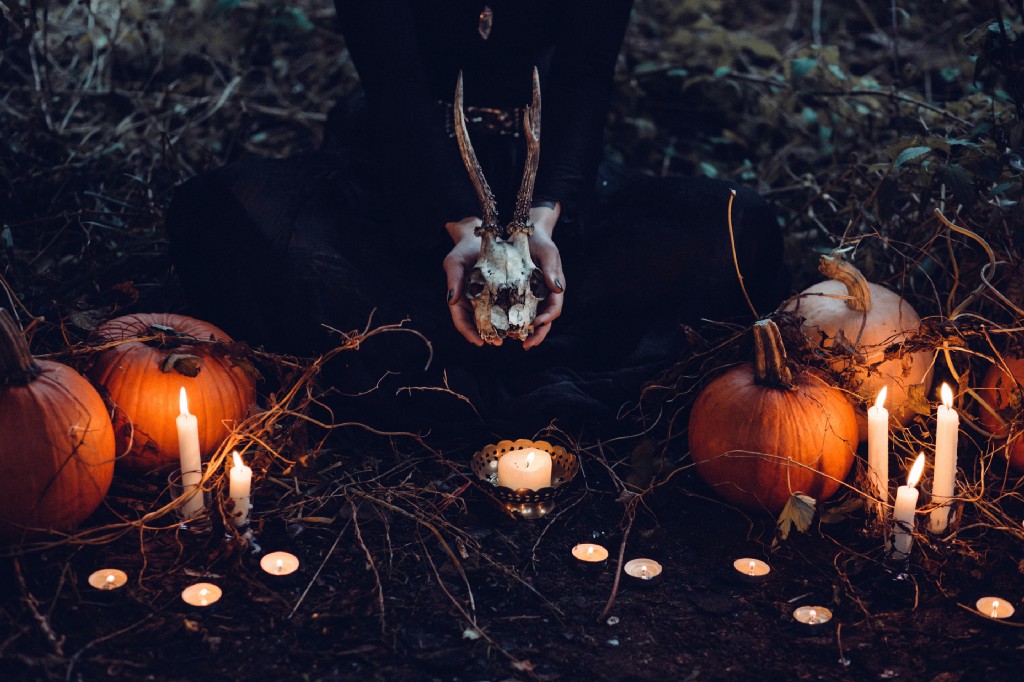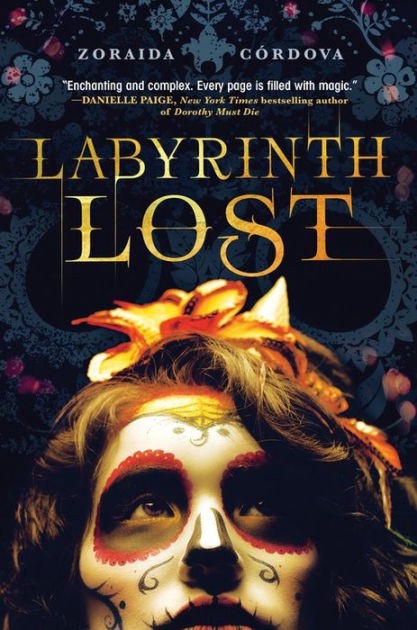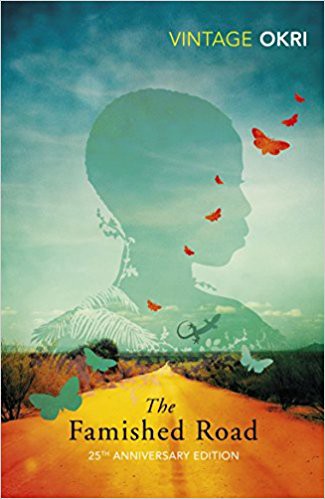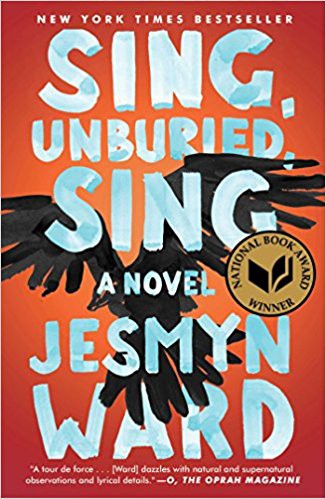Reading Lists
8 Books About Witches and Spirits That Will Bring Magic to Your Life
Stories about witches, mediums, spellworkers, and the ghosts they invoke can tell us a lot about the mundane world

On full moons, I used to gather with a group of women at a candle-lit table while we drank red wine and passed around bundles of sage. We had no idea what we were doing, but it felt cool to be coven-like. We’d all watched a lot of Buffy the Vampire Slayer and got Tarot cards as gifts once, and wanted community that wasn’t another networking opportunity. Turns out we weren’t very original. According to the Pew Research Center, Americans have been getting less religious but more spiritual, and the witchy and supernatural are experiencing a surge into trendy territory.
But while Buffy-inspired covens may be a trend, witchcraft, sorcery, spiritualism, and all things magical have been alive and well in literature for a long time. Under the giant umbrella of magic we find spirits haunted by the trauma of ancestral stigmas or unnamed violence; an otherwise silenced group of people wielding new forms of agency and power; and alternate retellings of some real-world societal pressures. Here, we’ve collected 8 novels with witches, mediums, spirits, and other forces of magical might that continue to help us realize what we are cursed or enchanted by, and help us reimagine what might be possible instead.
Labyrinth Lost by Zoraida Córdova
Alexa Mortiz is the most powerful bruja of her generation and she’s only about to get more powerful. On her approaching Deathday, she’ll receive the cumulative power of her bruja ancestors before her. And she’s dreading it. She hates magic. In the past, the “power” has accumulated into a lot of pain — there was her godmother’s death, and her father’s disappearance after Alexa performed magic so horrific it chased him away. When she decides to cast one last spell that will strip her of her powers, she sends her entire family into the underworld of Los Angeles, Los Lagos. As Ana Grilo writes in her Kirkus Review for the book: “Mixing ideas from Ecuadorian, Spanish, African, Mexican, and Caribbean backgrounds, Labyrinth Lost is a story of dichotomy and identity: between here and there, between childhood and growing up, bruja and non-bruja, between independence and the pull of family.” And now, there are whispers of it becoming a movie, too.
The Brief Wondrous Life of Oscar Wao by Junot Diaz
When witchcraft and colonialism collide, you get fukú. According to The Brief Wondrous Life of Oscar Wao: “They say it first came from Africa, carried in the screams of the enslaved; that it was the death bane of the Tainos, uttered just as one world perished and another began; that it was a demon drawn into Creation through the nightmare door that was cracked open in the Antilles. Fukú americanus, or more colloquially, fukú — generally a curse or a doom of some kind; specifically the Curse and the Doom of the New World.” Whether it’s a demon, a curse, or something else, the science-fiction aficionado, wordsmith, and virgin Oscar is intimately aware of fukú. Is the fukú to blame for his virginity or is Oscar just not Dominican-man enough? When Oscar finally finds love with a woman in the DR who is attached to some violent political figures, everyone pleads with him to let her go. The curse is a slithering thing that wriggles into and out of focus, but haunts Oscar and the others all along.
The Woman Warrior by Maxine Hong Kingston
Brave Orchid, Maxine Hong Kingston’s mother, was a doctor in China before coming to America. In the first section of The Woman Warrior, “White Tigers,” we learn about Brave Orchid’s battle with ghosts, with the smells and sounds of death, and the non-Western forms of medicine she practiced before moving to America. Maxine Hong Kingston asks what parts of her are American and Chinese, which parts are her own, and which parts are inherited from her mother and the women before her? Ultimately, which parts are made up, and which parts are real? Kingston collects the assemblage of identities and names them memoir. Transgressing the lines between myth-making, magic, and reality, story becomes the capacious category Kingston uses to generate both a sense of herself, her mother, and others.
Beloved by Toni Morrison
Morrison’s novel is inspired by the story of Margaret Garner, who escaped slavery and murdered one of her children and tried to kill the others in order to protect them from re-enslavement. As Morrison describes in the foreword: “To invite readers (and myself) into the repellant landscape (hidden, but not completely; deliberately buried, but not forgotten) was to pitch a tent in a cemetery inhabited by highly vocal ghosts.” In addition to the ghost of Garner, the novel is haunted more directly by the ghost of Beloved, killed by her mother Sethe. Beloved has now shown up on the steps of the house she lived in as an infant—only now she is a grown woman. She roosts in the house and expands as her mother Sethe, desperate to give her everything, withers and thins. In the end Beloved must be exorcised by Baby Suggs, the matriarch and healer for Sethe and the rest of the ex-slaves living in their Ohio town.
The Famished Road by Ben Okri
Azaro is an abiku, a spirit child, living in an unnamed Nigerian city. He narrates his experience straddling the spiritual and material world, as his spirit brothers and sisters try to pull him back into the world of the spirits, and Azaro tries to stay in the material world. Azaro loves his mother, who loves him and protects him, and his father, who is frustrated by having an abiku for a son, but becomes a boxer and later a politician to protect Azaro and the rest of his family. Then there’s Madame Koto, the whispered witch of the town who takes a liking to Azaro and his family, though her motives get murkier as the novel moves. The Famished Road won the Man Booker Prize for fiction in 1991. There’s myth, fantasy, legend, and just straight up piles of beautiful sentences in Okri’s novel.

When the Moon Was Ours by Anna-Marie McLemore
This one’s a middle-grade novel, but the story is irresistible. Miel is a queer Latina girl whose wrists bloom into roses, and rumor has it she was born from the spills of a water tower. Sam is a transgender Italian-Pakistani boy who paints moons and hangs them in the trees, and no one knows where he and his mother came from. Sam and Miel have each other, and know enough to stay away from the four Bonner sisters, the four witches in town, who want to harvest the roses growing from Miel’s wrists to make an infallible love potion, and will bewitch, ensnare and bedevil the secrets out of Miel and expose them to the world in order to get what they want.
Practical Magic by Alice Hoffman
Sandra Bullock and Nicole Kidman introduced me (and many of us) to the syrupy-sweet Practical Magic when they starred in a 1998 film based on the book by Alice Hoffman. Gillian and Sally Owens live in a small Massachusetts town with their beloved aunts. They’ve inherited their status as outcasts from two hundred years of Owens women who have been blamed for everything that’s gone wrong in the town. Though Gillian and Sally will both devise their own escapes from the black cats and love potions of their childhood, it’s their magical roots that will bring them back together.
Sing, Unburied Sing by Jesmyn Ward
Sing, Unburied Sing opens with Jojo, a thirteen-year-old boy, trying to prove he is a man by killing a goat with his grandfather, Pop. When his father, Michael went to prison and his mother, Leonie, fell apart, Jojo got used to becoming a man too soon: he takes care of his baby sister Kayla, helps Pop on the farm, and sits quietly by his dying grandmother. Leonie loves the children’s father, Michael, in a way she cannot translate for her children, even though his white family will not acknowledge her or her children because they are black. Leonie, meanwhile, is also struggling with drug addiction and trying to ignore her own mother’s questions about whether or not she has “the sight”—and every time she gets high, her brother, who died in a violent accident as a teenager, keeps showing up by her side. When Leonie, Jojo, and Kayla go on a road trip to pick up Michael after he’s released from prison, it turns out Leonie isn’t the only one with “the sight.” Sing, Unburied Sing delivers more of Jesmyn Ward’s prolific lyricism, so get ready to be haunted by the story and enchanted by the prose all at once.















